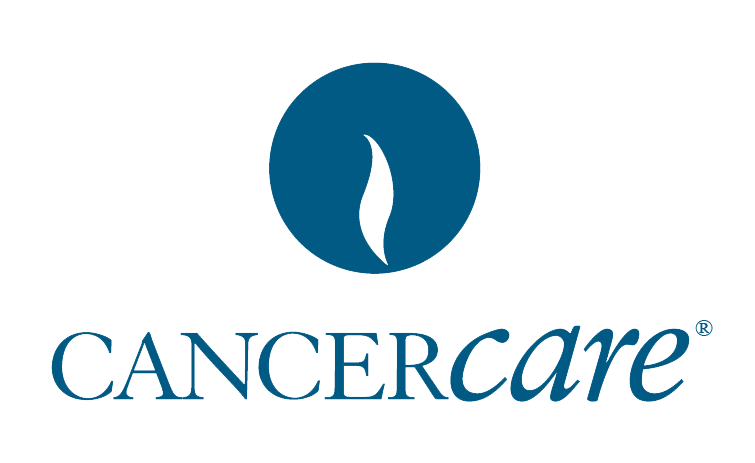
Addressing the Impact of COVID-19 and Health Disparities on Cancer Screening

Early detection is key to improving prognosis and achieving better outcomes for patients.
COVID-19 and Cancer Screening
The significance of cancer screening is undeniable. With routine testing, there is an increased chance of detecting cancer early when it is most treatable. Not only can screening identify cancer at its earliest stages, it can also find abnormalities before they become malignant.
Due to COVID-19, access to potentially lifesaving tests have been reduced. In the beginning of the pandemic, many patients throughout the United States were challenged with the decision to risk exposure to the novel coronavirus, or delay their medical care. At the same time, some cancer screening centers were closed. Updated guidelines suggested to postpone certain procedures to reduce the possibility of infection. States issued stay-at-home orders and across the country there was apprehension to enter medical facilities. These influences led to a sharp decline in cancer screenings. According to one study, at the beginning of the pandemic, breast, colon, lung and prostate cancer screenings decreased by 85%, 75%, 56% and 74% respectively, compared to the previous year.1
To many professionals in oncology, this trend was alarming. Without screening, new cancers may not be detected and treatment may be deferred. This disruption could lead to cancer being diagnosed at an advanced stage and the need for more complex medical care. Consequent negative impacts and adverse outcomes could result for years to come.1
Being aware of the effect of COVID-19 allows for the opportunity to help people overcome existing uncertainties. We can provide education on the importance of screening, and how to do so safely. Using guidance from the Centers for Disease Control and Prevention (CDC), we can equip patients with the tools they need to return to the doctor’s office confidently. This direction includes protective measures taken in a public health clinical setting to ensure risk of exposure is minimized.2 Patients will understand how to protect themselves, while feeling their doctors are prioritizing their well-being.
Health Disparities and Cancer Screening
Health care professionals should consider how cultural and environmental conditions contribute to access to screening. Understanding barriers to care is crucial to efficiently empower patients. Social determinants of health, including race, ethnicity, education, insurance status, employment and location all shape a patient’s ability to get screened for cancer. Although these factors have been present pre-pandemic, COVID-19 has highlighted and often accentuated the fact that these inequalities exist.3
Overall, the COVID-19 pandemic disproportionally affected medically underserved populations, including communities of color.3It has been previously established that there are racial disparities in cancer screening for Black and African American patients, as well as Hispanic patients. During the pandemic, access to cancer screening dropped at higher rates within these populations. Existing fears or mistrust of doctors were compounded by new ones related to COVID-19. Lack of access to care was exacerbated by COVID-19-related changes to public transportation, work schedules or the loss of employment and insurance within these groups.3 If these health disparities are ignored, it is impossible to create comprehensive solutions for cancer screening.
Access to Cancer Screening
Although there has been improvement in cancer screenings since the beginning of the pandemic, it is our responsibility to make substantial attempts to address gaps to care. To maintain the momentum of recovery, inequities have to be acknowledged. Health care professionals should recognize disparities and contribute to efforts that expand access. There is a necessity to implement outreach, continue campaigns and offer education—especially for vulnerable communities. These initiatives are crucial in getting resources to underserved areas.4 Furthermore, to be successful, programs must be done in a culturally and linguistically appropriate manner.
Time to Screen is an example of a national campaign encouraging people to take control of their health by getting recommended cancer screenings back on track. This collaboration between CancerCare and the Community Oncology Alliance stresses the importance of screening, educates the public on getting screened safely and provides guidance on getting connected to care. Delivering this service through a health disparities lens, patients will learn how to overcome barriers and obtain their screening. Through these continued efforts, we will be able to make positive impacts and ensure equitable resources to individuals in need.
For more information on Time to Screen, you can call 1-855-53-SCREEN or go to
Marissa Fors is Director of Specialized Programs at CancerCare.
Founded in 1944, CancerCare is the leading national organization providing free, professional support services and information to help people manage the emotional, practical and financial challenges of cancer. Our comprehensive services include case management, counseling and support groups over the phone, online and in-person, educational workshops, publications and financial and co-payment assistance. All CancerCare services are provided by master’s-prepared oncology social workers and world-leading cancer experts.
References
- Patt D, Gordan L, Diaz M, et al. Impact of COVID-19 on cancer care: How the pandemic is delaying cancer diagnosis and treatment for American seniors. JCO Clinical Cancer Informatics. 2020; 4:1059-1071. doi:10.1200/CCI.20.00134
- Public Health Activity Guidance.Centers for Disease Control and Prevention.April 8, 2020. Accessed December 15, 202. https://bit.ly/3Fs1nPW
- Carethers M, Sengupta R, Blakey R, Ribas A, D’Souza G. Disparities in cancer prevention in the COVID-19 era.Cancer Prevention Research. November 1 2020; 13 (11) 893-896; doi: 10.1158/1940-6207.CAPR-20-0447
- Marabella C. Cancer screenings recover from height of COVID-19 pandemic, but disparities remain. OncLive. August 19, 2021. Accessed December 15, 2021.
https://bit.ly/3HXxcl3
Newsletter
Knowledge is power. Don’t miss the most recent breakthroughs in cancer care.


















































































